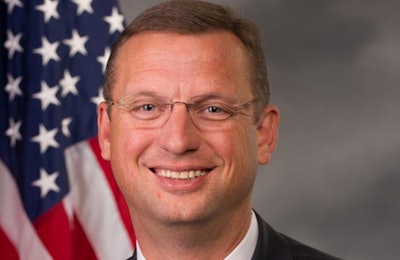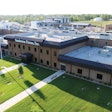
Rep. Doug Collins, R-Georgia, has written to U.S. Agriculture Secretary Sonny Perdue, encouraging him to consider implementing policies that would increase line speeds at U.S. poultry plants.
According to Collins, poultry producers in South America, Asia, Canada and Europe are safely operating at speeds faster than the maximum allowable speeds at U.S. poultry plants. The slower speeds, Collins says, represent a significant disadvantage to the poultry industry, not only in the state he represents, but in the country as a whole.
The USDA Food Safety and Inspection Service (FSIS) in 2014 published new regulations through the New Poultry Inspection System (NPIS), which reduced the amount of birds that could be processed per minute to 140. Collins would like to see that number raised to 175, as he questions the claims of the dangers of faster line speeds.
“While I take worker safety very seriously, evidence that faster line speeds would decrease worker safety appears limited at best,” Collins wrote. “In fact, evisceration, the step of production that the line speed would affect, is the most automated portion of poultry processing. The evisceration rooms only require workers and FSIS inspectors to monitor the machines as they complete the work. If a worker safety issue were to materialize, plants could alleviate any risks by staffing more workers on the production line or otherwise adjusting the process to accommodate any potential worker safety issues. FSIS inspectors regulate line speeds and have the ability to slow or stop a line at any point is the plant is not meeting process control.”
The full text of the letter can be seen on Collins’ website.


















